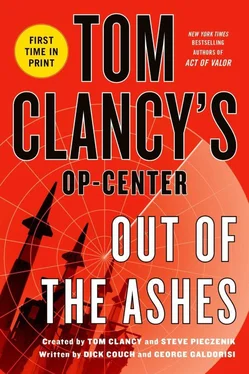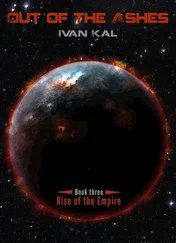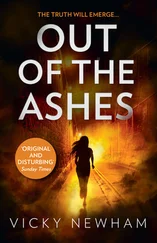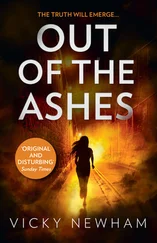Shortly thereafter, the same firm came to him demanding more information. This time, instead of offering payment, they said they would inform on him if he did not comply. Azka reluctantly agreed to do their bidding, but before he did what they asked, a large explosion ripped through the offices of that firm during working hours, causing great loss of life. When the blast took place, he was in his cubicle, calculating the load bearing of the I-beams on one of his firm’s projects. He felt the slight movement as the pressure wave passed, smiled to himself, and continued with his calculations. Later that month, he resigned his position with the American engineering firm; he had found a new calling.
The life of an ethnic Chinese in Jakarta with no family was an isolated and lonely existence. Yet Azka didn’t mind; he had his work, although that work took only one or two weeks every few months. He had discretely made contact with an element of a Singapore triad operating in Jakarta. With only a post office box that served the interests of all concerned, Azka had a new employer, and one that paid well.
Azka was physically a slight man, partly from his ancestry and partly from his lack of a proper diet when he was a child. He had regular features, a pronounced overbite, and a lazy left eye that was the result of a bout with scarlet fever that had gone untreated. One day soon, Azka told himself, I will be wealthy enough to leave this place and purchase a better life . Aside from his intellect and training, he had another advantage to aid in his new calling. He was a man totally devoid of compassion or conscience. Finally, his day had arrived and he would be wealthy.
When Azka took the job, Abdul-Muqtadir Kashif, through his Lebanese intermediary, had assured him US$10,000 for every American life he took. He hoped to earn close to US$20 million from this venture. It was not as much as the Americans paid to their contractors, like Blackwater and Triple Canopy, but it was still a tidy sum. The contracting of mercenaries had worked well for the United States. Was he not entitled to his share in this killing-for-hire business?
Azka looked at his watch; it would not be long now, minutes perhaps.
Lincoln Financial Field, Philadelphia, Pennsylvania
(November 9, 1415 Eastern Standard Time)
Meagan Phillips didn’t really like football, but her father had taken each of her two older brothers to Eagles games before, and now it was her turn. Her daddy was taking her! A high school history teacher, Charlie Phillips couldn’t afford to buy Eagles football tickets often, but when he could, he had always taken one of his boys. Now he was finally taking Meagan. She was ecstatic.
“Meagan, do you see that big board up there with all the lights?”
“Uh-huh.”
“That’s the scoreboard. It tells us what the score is, how long there is to go in the game, who has the ball, and things like that.”
“Does it say who is going to win, Daddy?”
“No, Meagan, it doesn’t. We don’t know who is going to win. That’s why we cheer so hard for the Eagles, because we want them to win.”
“Uh-huh.”
Charlie’s two sons both played Pop Warner football, and they had coached Meagan on how much fun she’d have at the game with her daddy. Charlie was making it fun. It was barely into the second quarter, and they’d been to the concession stand fifty feet behind them twice and to the potty once, and had bought pink cotton candy from a roving vender. Charlie hadn’t fussed at Meagan because she had spent most of the game hunched down in her seat playing a video game and munching her goodies. After all, she was only five.
“Now, Meagan, when everyone gets up and cheers, you wave that big foam finger I bought you.”
“Like this, Daddy?” Meagan replied as she waved the midnight-green Eagles finger from side to side.
“That’s it, Meagan! I know the Eagles are going to win now,” Charlie replied with a chuckle.
They divided their attention as they had before — Charlie to the Eagles, down a touchdown but driving toward the end zone, and Meagan to her video game.
Minutes later, Charlie Phillips leapt to his feet as the Eagles receiver snared the pass in the corner of the end zone. “Touchdown, Meagan!”
Meagan stood up and started to wave her foam finger, but then dropped it and whipped her tiny hands over her ears. “Daddy, it’s so loud. Everyone is yelling.”
“It’s OK, Meagan,” Charlie replied, bending down and cuddling his daughter. “Everyone is just so excited, that’s all. Tell you what. Next Eagles touchdown we’ll celebrate and buy some more cotton candy.”
“I want blue this time, Daddy.”
“Blue it is.”
Meagan returned to her video game and her Twix bar as the Eagles kicker punched the ball through the uprights for the extra point. Charlie Phillips sat back down and congratulated himself on his decision to bring Meagan to a game. She was having fun.
“Daddy?”
Meagan felt her seat vibrating, then shuddering, then heard the sound. Her senses were alert. Something was different, something was wrong. The sound was louder, much louder, than when the people were cheering a few moments ago, and now the stadium was shaking.
“Daddy?”
The sound was deafening, more like a thunderstorm than an explosion, more like a subway entering a station than a bomb, piercing the air above the cheers of sixty-five thousand fans.
“Daddy!”
Meagan’s senses caused her to finally look up. She followed the turned heads of the people around her as they looked back behind them. There they saw smoke, flame, and debris as an entire section of seats in the deck above and behind them collapsed, raining down concrete, seats, other debris, and people !
“Daddy!” Meagan shouted as she reached for her father’s arm, not knowing what was happening. Her brain was in sensory overload with the acrid smells of fire and chemical accelerants now overwhelming her.
A split second later, Meagan’s world was destroyed.
A large piece of concrete smashed into the top of Charlie Phillips’s head, shattering his skull. Her daddy’s blood, tissue, and brain matter flew over Meagan’s head. Then he collapsed on top of Meagan.
“Daddy, Daddy, Daddy!” Meagan cried as she shook her father’s inert body, squirming to try to free herself, his weight crushing her.
New sounds, the screams and shrieks of the wounded and dying, pierced the air. Then it was the increasing crescendo, feet stomping on concrete, fans stampeding toward the exit tunnels, their frantic footfalls growing ever louder.
Panicked fans near them pushed, shoved, and stepped on each other, their panic rising. The dust still had not settled from the collapsed section of the upper deck of the stadium that had fallen onto the section below. It was right behind where Megan Phillips now lay trapped underneath her father’s lifeless body, sobbing inconsolably, the smell and stench of death overwhelming her, her father’s own blood now oozing onto her.
“Little girl, come on, it’s not safe, we have to go!” said a young woman as she lifted Charlie Phillips’s limp body off of Meagan. The Good Samaritan grabbed the little girl’s left forearm and tried to lead her away.
“NO! My daddy, my daddy!” Meagan cried as she tried to pull her father upright, her efforts futile, the blood pooling up, the life already drained from him.
The woman was torn; her two friends were shoving their way toward the exits, stepping over many bodies like those of Charlie Phillips who had been killed by falling debris. She was scared beyond words, but she didn’t want this little girl crushed in the stampede.
Читать дальше












